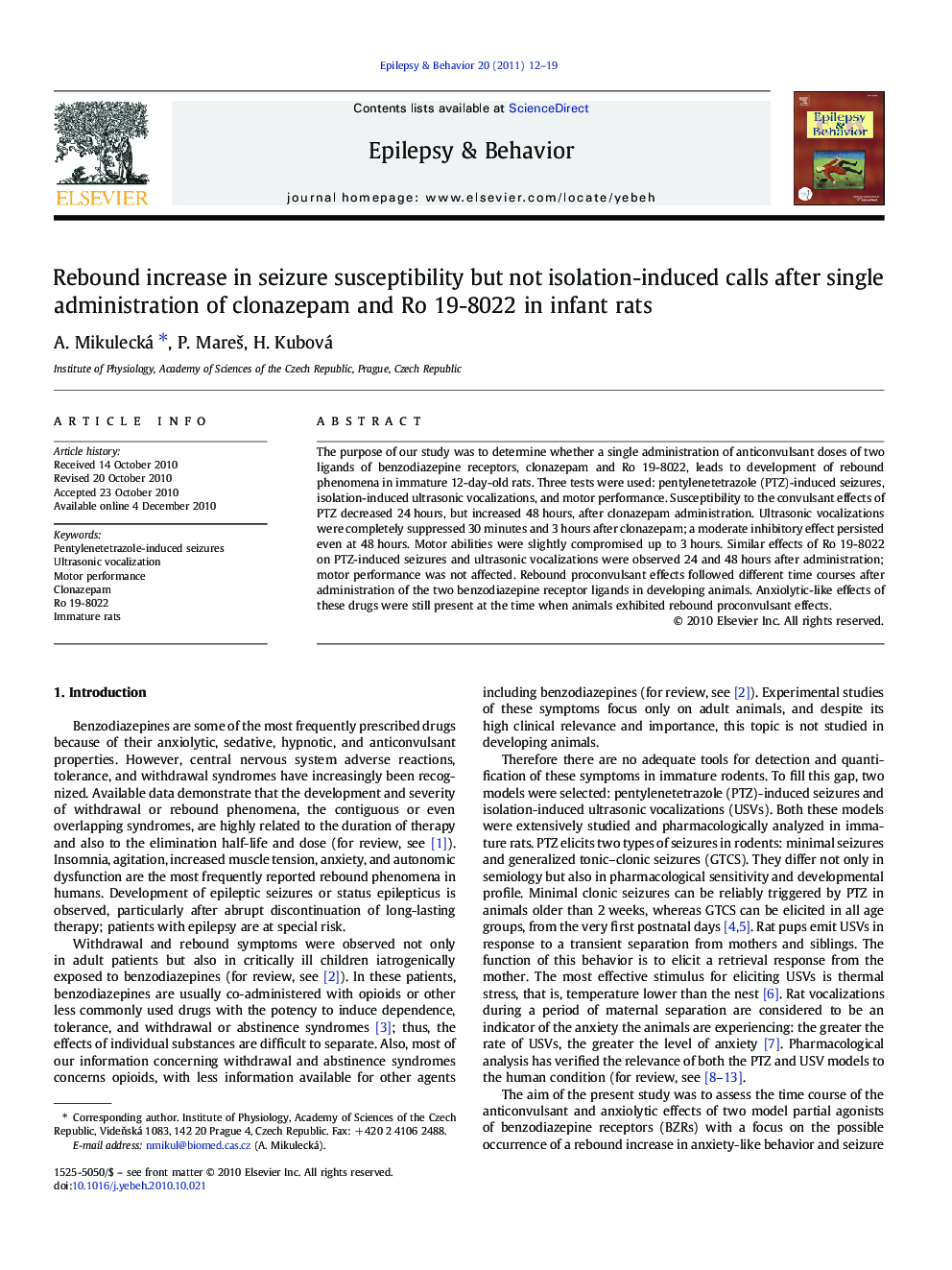| Article ID | Journal | Published Year | Pages | File Type |
|---|---|---|---|---|
| 6014893 | Epilepsy & Behavior | 2011 | 8 Pages |
The purpose of our study was to determine whether a single administration of anticonvulsant doses of two ligands of benzodiazepine receptors, clonazepam and Ro 19-8022, leads to development of rebound phenomena in immature 12-day-old rats. Three tests were used: pentylenetetrazole (PTZ)-induced seizures, isolation-induced ultrasonic vocalizations, and motor performance. Susceptibility to the convulsant effects of PTZ decreased 24Â hours, but increased 48Â hours, after clonazepam administration. Ultrasonic vocalizations were completely suppressed 30Â minutes and 3Â hours after clonazepam; a moderate inhibitory effect persisted even at 48Â hours. Motor abilities were slightly compromised up to 3Â hours. Similar effects of Ro 19-8022 on PTZ-induced seizures and ultrasonic vocalizations were observed 24 and 48Â hours after administration; motor performance was not affected. Rebound proconvulsant effects followed different time courses after administration of the two benzodiazepine receptor ligands in developing animals. Anxiolytic-like effects of these drugs were still present at the time when animals exhibited rebound proconvulsant effects.
Research Highlights⺠Administration of clonazepam and Ro 19-8022 led to rebound phenomena in immature rats. ⺠Ultrasonic vocalizations were suppressed by both clonazepam and Ro 19-8022. ⺠Dissociation between rebound proconvulsant and anxiolytic-like effects was observed.
